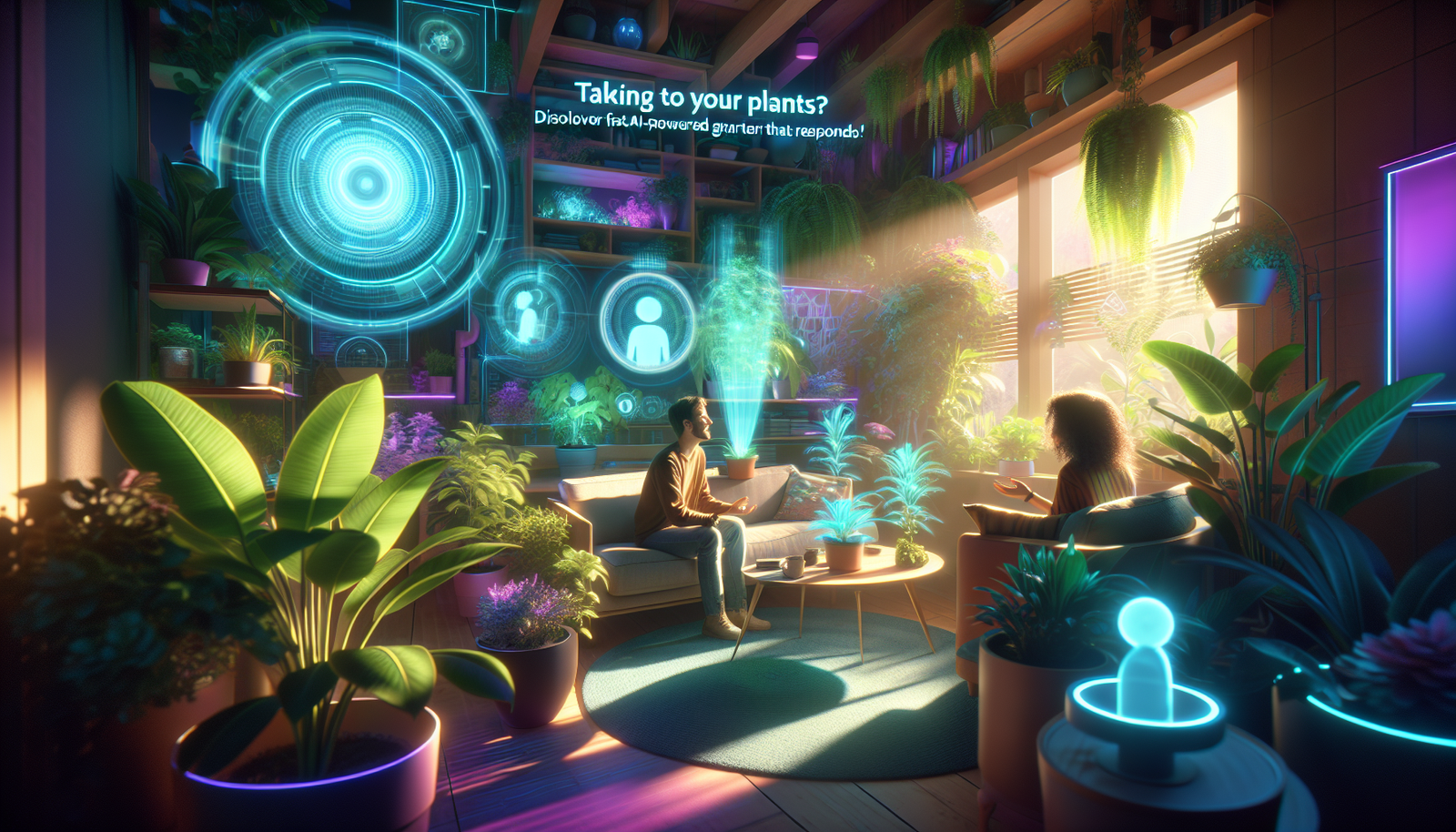Communication with plants is taking a revolutionary turn thanks to artificial intelligence. An intelligent garden is being born, renewing our understanding of human-plant interactions. The gardens of the future are becoming reactive entities, sparkling personalized dialogue that optimizes every growth. These technological innovations are transforming our relationship with nature, made possible by advanced algorithms. Get ready to interact with your green space like never before, where every leaf becomes an enlightened interlocutor.
An intelligent garden thanks to artificial intelligence
The digital revolution is affecting all fields, including gardening. AI is transforming the gardener’s experience by enabling unprecedented interactions with plants. The first intelligent garden powered by AI offers a direct dialogue between the user and the vegetation.
Interacting with your plants
Imagining talking with your plants becomes a reality. This system uses an integrated mobile application that facilitates communication. The user can ask questions about plant care, ideal growing conditions, or even general gardening tips.
Smart devices and connected sensors measure humidity, temperature, and brightness. This information is essential for optimizing plant care. Thanks to the provided analyses, the app suggests the best practices for each species.
The role of the gardening chatbot
A dedicated chatbot is an essential tool of this intelligent garden. It uses sophisticated artificial intelligence algorithms to interpret user requests. In real time, this chatbot answers a variety of questions and offers practical solutions for gardening.
With an intuitive interface, the user can easily navigate through the various features. This service increases accessibility to horticultural knowledge, often little known, by making information instantly available.
Communicative plants
Technology also allows plants to “communicate” via sensors. These devices collect essential data on plant health. With every change in conditions, plants send information to the user through the application. This represents a leap forward in understanding plant needs.
Advantages of an intelligent garden
This intelligent garden offers several undeniable advantages: simplified monitoring of plant needs, reduced cultivation errors, and optimized resources. The ability to automatically adjust watering and fertilization becomes a real relief for gardeners, whether novice or experienced.
Studies show that users experience increased satisfaction when cultivating gardens with this system. Gardening becomes more accessible and lively, fostering a deeper connection with nature.
The future of intelligent gardens
The prospects for the evolution of intelligent gardens promise to be fascinating. Future developments include even more sophisticated systems capable of responding to the specific needs of plants in real time. This advancement could serve as a model for more sustainable and effective agricultural practices.
Gardening transformed by AI is participating in the broader trend of smart cities. By innovating in the field of horticulture, these technologies aim to make urban agriculture more resilient to current environmental challenges.
Frequently Asked Questions
How does an intelligent garden powered by AI work?
An intelligent garden uses sensors to monitor the state and needs of the plants. Artificial intelligence analyzes this data to provide personalized recommendations regarding watering, fertilization, and other necessary care.
What types of plants can be grown in an intelligent garden?
Practically all plants can be grown in an intelligent garden. This includes herbs, vegetables, and even some flowers. AI can help choose the best-suited plants for your environment and local climatic conditions.
Is it necessary to have gardening knowledge to use an intelligent garden?
No, an intelligent garden is designed to be accessible, even for beginners. AI provides advice and real-time answers, making gardening easier and less intimidating.
How can I communicate with my intelligent garden?
You can interact with your intelligent garden through a dedicated mobile application, where you can ask questions, receive advice, and get notifications about the status of your plants.
What advantages does artificial intelligence bring to gardening?
Artificial intelligence allows for more effective analysis of environmental data, optimizes care for plants, and quickly identifies health problems in plants, thus increasing the chances of success in your garden.
Are intelligent gardens accessible for people with limited space?
Yes, intelligent gardens can be adapted to small spaces, such as balconies or terraces, thanks to hydroponic or vertical gardening systems that maximize the use of available space.
What technology is used to ensure communication in an intelligent garden?
Intelligent gardens use a combination of IoT (Internet of Things) sensors, AI algorithms, and digital platforms to monitor, analyze, and interact with the plant growth environment.
Does the intelligent garden require special equipment?
Generally, you will need soil sensors, an automated watering system, and a compatible app on your smartphone to fully benefit from the features offered by an intelligent garden.
How is data on plants collected and analyzed?
Data is collected using sensors that measure various parameters such as soil moisture, temperature, and light. AI analyzes this data to determine the specific needs of each plant and adjust care accordingly.






